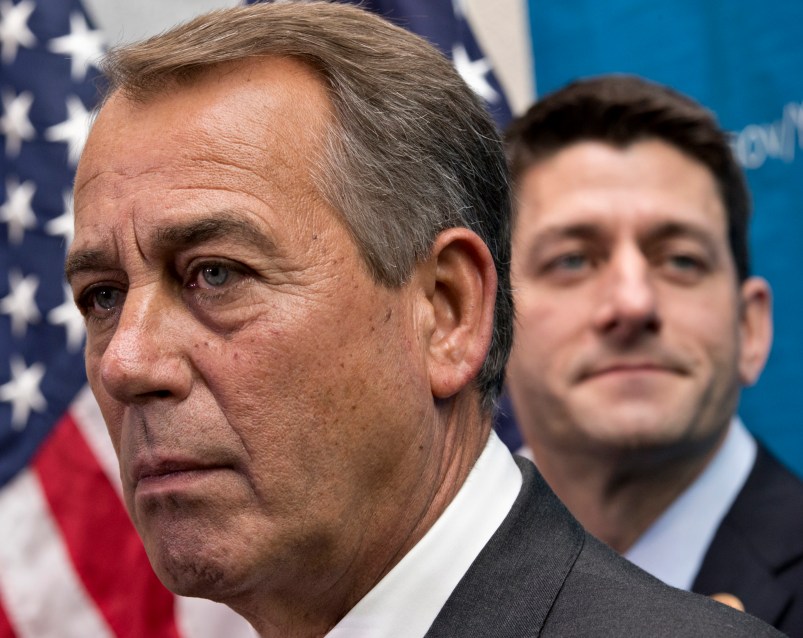Republicans may seek to tie a debt ceiling increase to legislation that could sabotage Obamacare with higher premiums, House Budget Chairman Paul Ryan (R-WI) told reporters.
“There are issues with Obamacare,” Ryan said Thursday at a San Antonio event, as quoted by Politico. “A lot of folks don’t realize there could be some massive insurance company bailouts in the near future with Obamacare that a lot of taxpayers probably didn’t know about that we don’t want to see happen. That’s one of the issues that’s in the realm of possibility. There are a lot of things … that are being discussed but its just not in our interest to negotiate in the media.”
The “insurance company bailout” is a reference to a burgeoning Republican effort to eliminate a stability mechanism in Obamacare — known as “risk corridors” — that is aimed at holding down premiums in the first few years of the law’s insurance marketplaces. It is financed by insurers who enroll healthier patients and pays out insurers who enroll sicker patients. But it does not have to be deficit neutral if the overall pool of consumers is sicker than projected (as early estimates suggest is so far the case).
Ryan’s comments come on the heels of indications by Speaker John Boehner‘s
(R-OH) office and Senate Minority Leader Mitch McConnell (R-KY) that Republicans won’t agree to raise the debt limit — the congressionally mandated limit on how much debt the federal government can incur — without policy add-ons. The House budget chief provided the first indication of what Republicans might conceivably ask for in exchange for a debt limit increase.
Legislation to repeal the risk corridor provision has been introduced by Sen. Marco Rubio (R-FL) and several House Republicans. The effort is backed by conservative lobbying groups such as Heritage Action and Club For Growth and has recently become a leading cause for anti-Obamacare writers. Prominent conservative columnists Charles Krauthammer and Ramesh Ponnuru argue that repealing the risk corridors could damage Obamacare by raising premiums.
The U.S. is set to exhaust its borrowing authority by late February, Treasury Secretary Jack Lew informed Congress this week, urging a speedy increase in the debt limit. The White House says it must be raised without strings attached.
With House Republicans set to map out their plan of action at their annual retreat next week in Maryland, Senate Budget Chairwoman Patty Murray (D-WA) released a memo Friday warning them that “threats or hostage-taking” over the debt ceiling would fail as they did last year.
“We will not negotiate over whether or not the United States of America should pay its bills,” wrote Murray, a member of the Democratic leadership. “And once again, before they get any further down this damaging path, we call on our Republican colleagues to not play politics with our economic recovery.”
This article has been updated.






